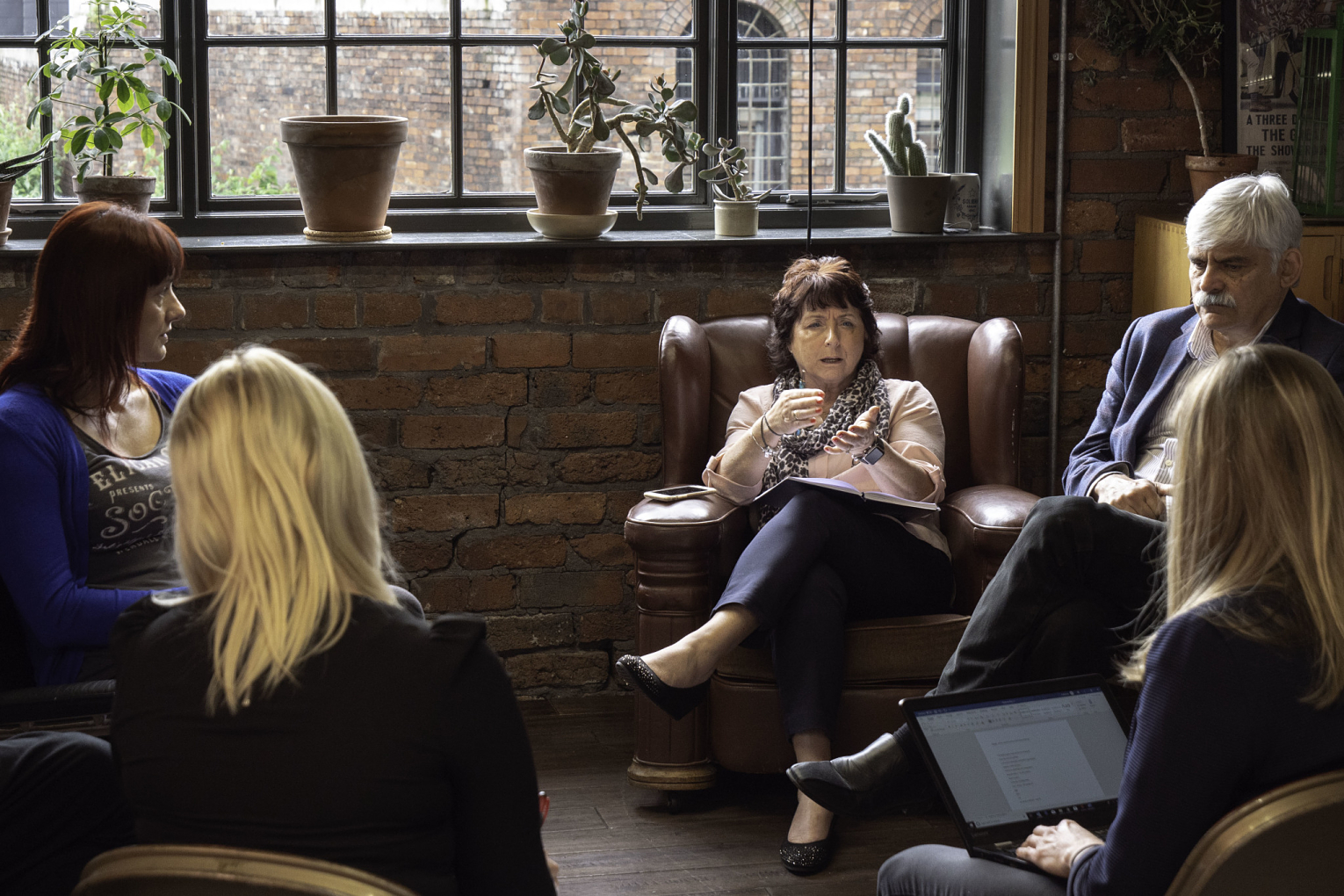In June 2019 the pilot schools, along with the rest of the partners involved in NEMESIS, met in Sheffield (UK) to put in common the experience with those pilots schools that have been implementing NEMESIS. The meeting was held in The Chimney House, a part of Sheffield’s important historic industrial heritage that once housed an elephant named Lizzie during World War One.

Children guiding us towards a new school model
During our first day, we visited Herringthorpe Junior School, a beautiful school located in Rotherham, part of the Willow Tree Academy. Jane, their Headteacher, gave us the welcome and introduced us to the children who would be our tour guides. As part of NEMESIS, Herrinthorpe’ pupils have been developed a large variety of projects, form a renovation of a caretakers house, to a second-hand clothes market. After their pilots, they are now looking at how they can roll this out across the academy, looking at using the NEMESIS framework in all classrooms and in all year groups from September.


The link with real-life experiences
The NEMESIS educational model was co-designed and tested over a period of 3.5 years by primary and secondary students, teachers, social innovators, businesspeople, researchers and members of the community in France, Germany, Greece, Portugal, Spain, Holland and the United Kingdom. As well as offering us an important opportunity to reflect on the NEMESIS’s educative model, this meeting also provided us with a chance to ponder its potential to be extended to a larger number of new schools. Teachers from all our pilot’s schools presented their projects, talking about their challenges, unexpected outcomes and advice that they would give to future schools.
Meeting's being kicked off by our fantastic UK pilot schools! pic.twitter.com/meut3CJtSc
— Jen Wall (@JenLoveLangs) June 12, 2019
This meeting was the time to see, after all the theory, how NEMESIS is actually changing the realities of the schools. As part of the expected and also unexpected outcomes of the pilot, hierarchical relationships between children and adults are being transformed. As one child of the Albares School said: “It is like getting out of the classroom, it’s more real. We are not treated as simple kids but as persons. It’s very interesting to collaborate with people of different ages […] if I think about the future that’s the kind of situation we will be facing […] dealing with different kinds of people that you may not know very well, but with whom you’ll need to collaborate anyway.”
“We are not treated as simple kids but as persons.”
Co-creation labs are safe spaces to identify and ponder social problems, but also are processes that allow students to have a comprehensive view of their connection with the others, which motivates them to engage in social action and increase their civic engagement. Students participating in co-creation labs have increased their confidence and sense of belonging and feel more empowered. This empowerment is manifested in underlying psychological processes such as increased autonomy, belonging or connectedness. Moreover, this empowerment can also be seen also in the rise of self-confidence and more articulate discourse of their needs and interests, especially in those children with a tendency toward shyness or with relationship problems.
As one the NEMESIS community members, Catherine Brentnall, said, language constructs reality, and those kinds are testimonies that show what is in the core of the NEMESIS educational model: to put the children at the centre of everything so that the become the changemakers of tomorrow.
And now, what?
With all the experience gained, the time has come to move on to pilot two, in which new schools are invited to participate. NEMESIS now not only have a tested pedagogical framework, but also the experience of other teachers, parents and social innovators who may have never heard of the term “Social Innovation Education” before and ended up immersed in a process in which their students become more socially aware and innovative.
NEMESIS is a Horizon 2020 project bringing together education and social innovation to empower the changemakers of tomorrow. The project started in 2018 and it will continue until 2021. At the moment there are ten schools involved from five European countries and a second pilot will start in September 2019, for which we invite more schools.
Are you a school member and do you want to implement Social Innovation Education in your school? Feel free to surf the web and drop us a line (hello@nemesis-edu.eu) or fill our contact form.
Are you a social innovator who – as those mentioned here- would like to collaborate with a school? Click here for more info on how to become a mentor.

